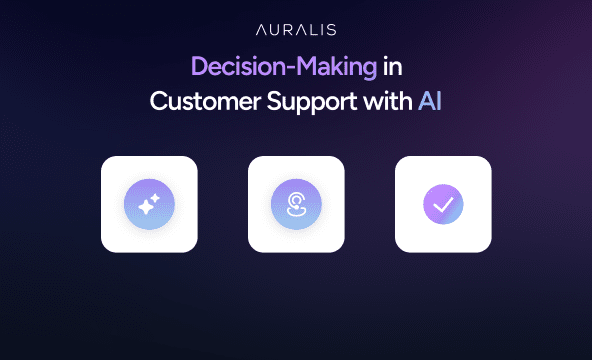AI-driven decision strategies
AI-driven decision strategies are transforming how businesses approach decision-making by leveraging advanced artificial intelligence (AI) technologies to analyze data, predict outcomes, and recommend optimal actions. These strategies combine machine learning, data analytics, and automation to enable more informed, faster, and more accurate decisions across various business functions, from marketing and sales to customer service and operations.
One of the key advantages of AI-driven decision strategies is their ability to process vast amounts of data at speeds and scales beyond human capacity. AI systems can analyze structured and unstructured data from various sources, such as customer interactions, sales trends, market research, and social media, to uncover patterns, trends, and insights that would be difficult or time-consuming for humans to detect. By using AI to analyze data in real-time, businesses can make decisions based on up-to-date and accurate information, which can significantly improve responsiveness and agility.
For example, in customer support, AI-driven decision strategies can help businesses determine the best course of action for addressing customer inquiries or issues. AI systems can analyze historical data and current customer interactions to recommend personalized responses or escalation procedures, ensuring that customers receive the most effective and timely support. By automating decision-making processes in this way, AI reduces the burden on support agents, enabling them to focus on more complex tasks while improving the overall efficiency and quality of customer service.
In marketing, AI-driven decision strategies can be used to optimize campaigns by analyzing customer behavior, preferences, and engagement patterns. AI tools can predict which content or offers are most likely to resonate with specific segments of the audience and recommend personalized marketing actions, such as targeted advertisements or product recommendations. This approach not only enhances customer engagement but also improves conversion rates and customer retention by delivering more relevant and timely content.
AI can also be applied in supply chain management to optimize decision-making around inventory management, demand forecasting, and logistics. By analyzing historical sales data, market trends, and external factors such as weather or economic conditions, AI systems can help businesses predict future demand, adjust inventory levels, and optimize delivery routes. This helps minimize stockouts, reduce excess inventory, and improve overall supply chain efficiency.
In finance, AI-driven decision strategies are revolutionizing risk management and fraud detection. AI algorithms can analyze transaction data in real time to identify suspicious patterns, flagging potentially fraudulent activities before they escalate. Similarly, AI systems can assess creditworthiness and make lending decisions by analyzing customer financial histories, credit scores, and other relevant factors. These AI-driven approaches not only improve decision accuracy but also reduce the time and costs associated with manual assessments.
AI-driven decision strategies also play a significant role in talent management and human resources (HR). AI tools can help businesses make more data-driven decisions about hiring, employee performance, and workforce planning. For example, AI systems can analyze resumes, interview responses, and employee data to predict which candidates are most likely to succeed in a particular role. In addition, AI-driven performance analytics can help managers identify high performers, assess skill gaps, and recommend development opportunities.
One of the most powerful aspects of AI-driven decision strategies is their ability to continuously learn and improve over time. Machine learning algorithms allow AI systems to refine their decision-making processes based on new data, making decisions even more accurate and effective as more information becomes available. This ability to adapt to changing conditions and evolving data ensures that businesses remain competitive in fast-paced and dynamic markets.
AI-driven decision strategies also help businesses improve customer experiences by providing personalized recommendations, streamlining interactions, and reducing response times. For instance, AI systems can recommend products or services based on a customer’s previous purchases or browsing behavior, offering a more personalized shopping experience. Additionally, AI can help businesses anticipate customer needs and preferences, enabling proactive engagement and enhancing customer satisfaction.
However, while AI-driven decision strategies offer numerous benefits, there are also challenges to consider. Businesses must ensure that their AI systems are transparent, ethical, and aligned with regulatory requirements, particularly when it comes to data privacy and bias. It is essential to ensure that AI models are trained on diverse and representative datasets to avoid biased decision-making that could negatively impact certain groups of people.
Moreover, while AI can provide valuable insights and recommendations, it is important for businesses to maintain human oversight in the decision-making process. AI should be viewed as a tool to assist and augment human decision-making rather than replace it entirely. Human judgment is still necessary to interpret AI insights, ensure ethical considerations are met, and make decisions in complex or uncertain situations.
In conclusion, AI-driven decision strategies are revolutionizing the way businesses make decisions by harnessing the power of artificial intelligence to analyze data, predict outcomes, and recommend optimal actions. By automating decision-making processes, businesses can make faster, more accurate, and data-driven decisions that enhance efficiency, customer satisfaction, and overall performance. However, businesses must also ensure that their AI systems are transparent, ethical, and aligned with regulatory standards to maximize the benefits of AI-driven decision strategies while minimizing potential risks. As AI technology continues to evolve, the potential for AI-driven decision strategies to transform business operations will only continue to grow.

- Articles
-
 Amy
Amy
- 7 min read
